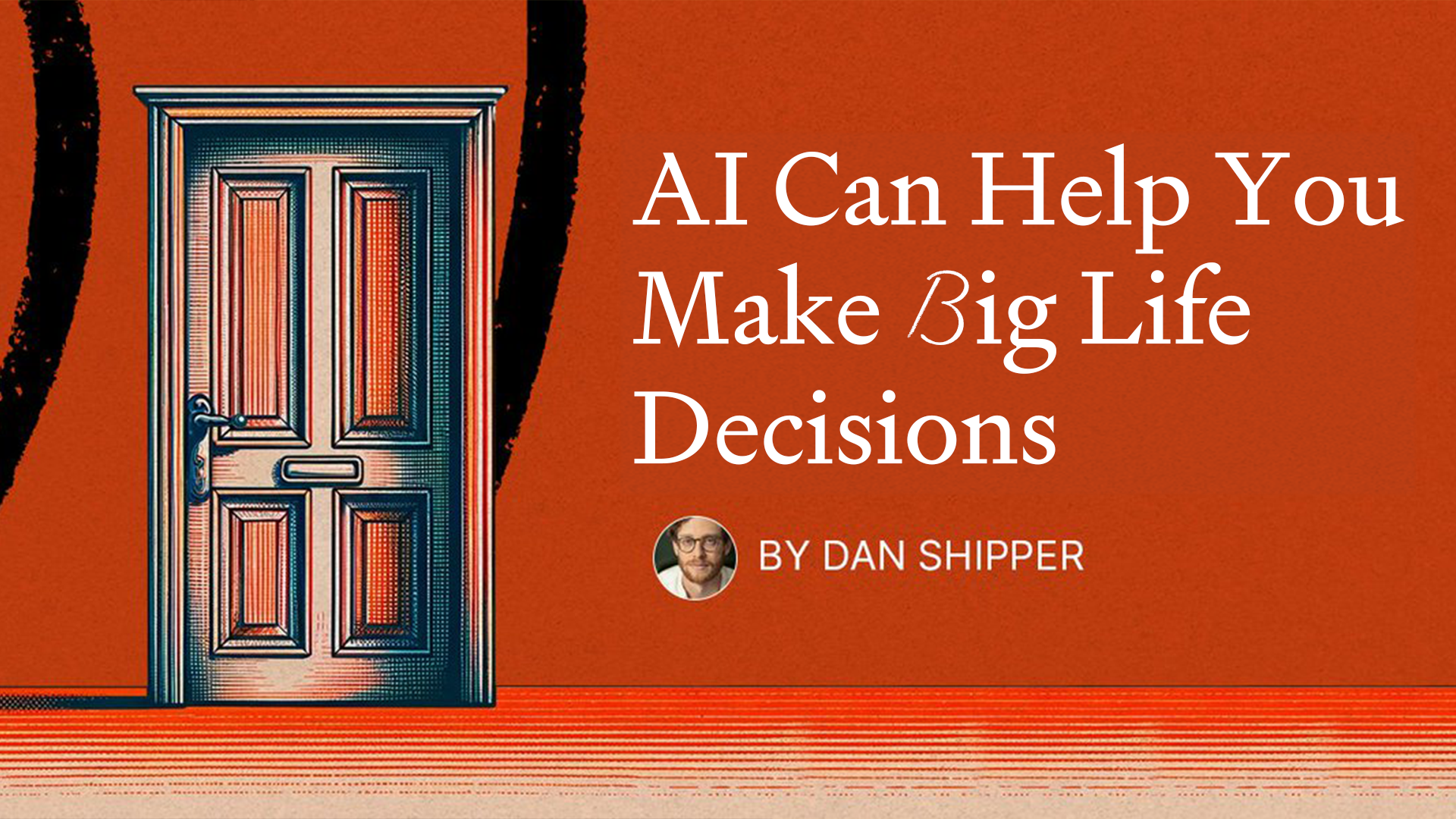AI Can Help You Make Big Life Decisions

🌈 Abstract
The article explores how artificial intelligence (AI) can help with making major life decisions, particularly "one-way door" decisions that are difficult to reverse. The author shares his personal experience of using AI to analyze his journal entries and predict how he would have felt about the decision to raise funding for his company, Every. The article highlights the power of AI in simulating personalities and emotions to provide insights that can aid in complex decision-making.
🙋 Q&A
[01] Exploring AI for Decision-Making
1. What are the key benefits of using AI to help with major life decisions?
- AI can simulate the author's personality, thoughts, and emotions to reveal how he might feel in different circumstances, allowing him to "try on" a decision before committing to it.
- AI can identify patterns and themes in the author's journal entries that provide clarity on his underlying fears, desires, and decision-making process.
- AI can generate hypothetical future journal entries to predict how the author would feel if he made a particular decision, giving him a better sense of the potential outcomes.
2. How did the author use AI to analyze his decision-making process around raising funding for Every?
- The author provided AI (specifically, Claude) with his journal entries about the decision to raise funding for Every.
- The AI identified key patterns and themes in the entries, such as the conflict between an investor-driven growth path and a more organic, founder-controlled approach.
- The AI then generated hypothetical future journal entries to simulate how the author would have felt if he had raised a small round of funding, as well as if he had decided not to raise any funding.
- The AI's predictions aligned closely with the author's actual experiences and feelings, providing valuable insights that the author felt he was missing at the time.
[02] Implications of AI-Assisted Decision-Making
1. What are the broader implications of using AI to help with major life decisions?
- AI can act as a "crystal ball" to help people better understand and predict their future emotional states, which are often key inputs to important decisions.
- By simulating personalities and emotions, AI can reveal insights that people may not be able to articulate or recognize on their own, helping them make more informed and self-aware decisions.
- The ability to "try on" decisions through AI-generated simulations can help people overcome the limitations of their own biases and preconceptions, leading to better outcomes.
2. What are the potential limitations or risks of relying too heavily on AI for decision-making?
- The article does not explicitly address the limitations or risks of AI-assisted decision-making, but it's important to consider factors such as the accuracy and reliability of the AI's predictions, the potential for bias in the training data, and the need for human judgment and oversight.
- Overreliance on AI could lead to a false sense of certainty or abdication of personal responsibility in decision-making.